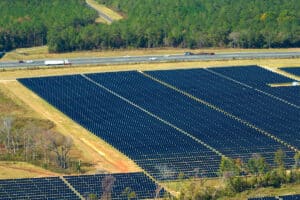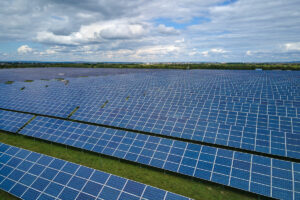Renewable Energy Credits (RECs) are a valuable commodity in the energy industry. They represent the environmental attributes of a unit of renewable energy and can be bought and sold like other commodities. The value of these credits varies depending on a range of factors such as market demand, regulatory requirements, and the type of renewable energy source from which they are generated.
What are Renewable Energy Credits?
Renewable Energy Credits, also known as Green Tags, Renewable Energy Certificates, or Tradable Renewable Certificates, represent the environmental benefits of renewable energy generation. A REC is created when one megawatt-hour (MWh) of renewable energy is produced and delivered to the grid. These credits can be bought and sold independently from the electricity generated, and they are used by organizations to demonstrate that they are using renewable energy or to meet regulatory requirements.
Read: Understanding Renewable Energy Credits
How are RECs Valued?
The value of renewable energy credits is influenced by a range of factors, including supply and demand, regulatory requirements, and the type of renewable energy source from which they are generated. In general, RECs are valued based on the cost of generating renewable energy, the value of the environmental attributes associated with that energy, and the market demand for those attributes.
Supply and Demand
The supply and demand of renewable energy credits can impact their value. When the supply of RECs exceeds the demand, the value of the credits decreases, and when the demand exceeds the supply, the value of RECs increases. The supply of RECs is affected bya the amount of renewable energy generation, while the demand is influenced by the number of organizations looking to purchase RECs to meet their renewable energy goals or regulatory requirements.
Regulatory Requirements
Regulatory requirements can also impact the value of RECs. In some cases, regulations may mandate that organizations purchase a certain amount of RECs to meet renewable energy goals or emissions reduction targets. When such regulations are in place, the demand for RECs increases, leading to a rise in their value.
Read: Understanding Trading Renewable Energy Certificates: Everything You Need to Know
Type of Renewable Energy Source
The type of renewable energy source from which the renewable energy credit is generated can also impact its value. Some renewable energy sources, such as solar and wind power, are more valuable than others, such as biomass or geothermal energy. This is because solar and wind power are considered more environmentally beneficial due to their lower carbon footprint and higher energy density.
RECs play an important role in the renewable energy market. They provide a means for organizations to meet their renewable energy goals without having to generate renewable energy themselves. This can encourage investment in renewable energy generation and help to reduce carbon emissions. These credits also provide revenue streams for renewable energy generators. By selling their RECs, renewable energy generators can recover some of the costs of generating renewable energy and make their projects more financially viable.
Read: What is a Solar Developer?
Interested in renewable energy?
Looking to pursue a renewable energy project and maximize your impact? Renewable Energy Credits (RECs) are a valuable commodity in the energy industry, and EnergyLink can help you utilize them to their full potential. At EnergyLink, we present a team of experts in the design, build and funding processes of energy projects. Let us guide you through the potential economic impact of your project, project cash flow and other useful data points to inform your project decisions. Click the button to get started, or speak to an expert at (866) 218-0380. Interested in staying up-to-date on all the latest energy industry news? Join our bi-weekly newsletter below.






